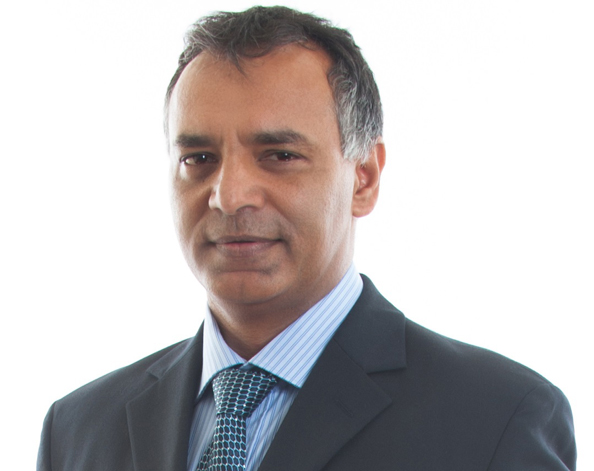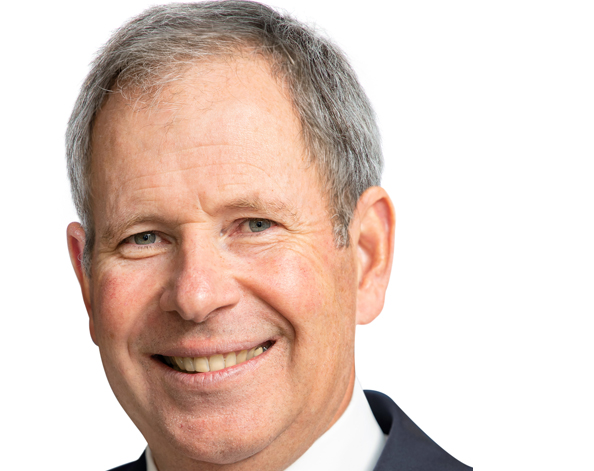Do you want to give us feedback on this webcast?
The success of the fight against Covid-19 will depend on the success of the various partnerships: notably between government, the private sector, and scientists.
In the latest episode of our Markets and Investments in the Time of Covid-19 webcast series, two key stakeholders, Professor Shabir Madhi, Professor of Vaccinology at Wits and Director of the Wits Vaccines and Infectious Diseases Analytics Research Unit, and Peter Wharton-Hood, Group Chief Executive at Life Healthcare, join us. The discussion is moderated by radio and television anchor Gugulethu Mfuphi.
They give their views on how they see the rollout of the vaccines, what this means in the fight for herd immunity and what the implications are for the healthcare sector in the years ahead.
Why SA is unlikely to reach herd immunity
Prof Madhi points out that because the current vaccines target ancestral strains of Sars-Cov-2 virus (the virus that causes Covid-19), it may not be completely effective in preventing illness caused by the newer variants.
“Therefore it's extremely unlikely that a country such as SA will reach herd immunity, even if we were to vaccinate 40 million individuals, especially in the context of the dominance of the beta variant in the country and that most of the current vaccines that are being used across the world are really targeted against the ancestral virus,” he says.
“Similarly, the sharp rise in infections in the current, third wave (especially in Gauteng), would seem to imply that those infected during the previous waves are not immune to the newer variants.”
The good news is that the currently available vaccines do a good job of preventing severe illness, especially among the most vulnerable.
“For the tools that we've got at hand and for us to get back to a relatively normal lifestyle, it's not about getting rid of the virus – that's not going to happen in our lifetimes. But we can ensure we have high-risk individuals protected adequately, which itself would be enough for us to be able to get back to a relatively normal lifestyle, even with the ongoing circulation of the virus,” he adds.
“And to achieve that may only require vaccination of about 15 million people, not 40 million.”

It's extremely unlikely that a country such as SA will reach herd immunity, even if we were to vaccinate 40 million individuals.
Why a faster vaccine rollout is so important
While the third wave is of concern, the good news is that the healthcare sector is better prepared to deal with it, thanks to the rollout earlier this year of vaccines to healthcare workers, says Wharton-Hood. He points out that at the comparable point in the pandemic trajectory in waves one and two, Life Healthcare had a significantly higher number of frontline healthcare workers who were either sick, in hospital, or in isolation.
“At this particular point, I'm pleased to say that it is significantly reduced. In Gauteng, we only had one nurse in hospital with Covid-19 and a significantly far lower number of nurses that had demonstrated levels of infection. My conclusion on that is the vaccine works, and it has protected our healthcare workers. “
The example of healthcare workers highlights why a faster rollout for the general population is so important. By preventing severe illness and the contagiousness of the virus, the return to a normal way of life can come sooner, rather than later, while the healthcare system will be able to cope better with managing the virus in future.
Because SA entered at such a late stage in procuring vaccinations, we have found ourselves at the back of the queue when it comes to accessing vaccines, explains Madhi. Further problems have presented themselves, such as the need to discard a large batch of Johnson & Johnson vaccines, while it appears that as a country SA creates the sort of regulations that hinder the process of distributing vaccines equitably and as quickly as possible.
“Many other middle-income countries have already vaccinated about 20% to 25% of the population. In SA, we're sitting at 2%,” he says.
Madhi advises that we should keep all options open when it comes to the different vaccines available, but also to understand that not all vaccines will have the same level of effectiveness.
Wharton-Hood however adds that he is concerned that not enough people in the over-60 bracket who qualify for the vaccine have presented themselves, an issue that needs to be addressed to speed up the process further.

Clearly, when we move into the next bracket of citizens that get vaccinated, logistics and supply chain will be put under pressure.
“When we ramp up our supply chain and logistics [in the next phase], we must ensure we take the learnings from our initial efforts in the vaccination process, concede where we've made mistakes and improve upon that vaccination process and get better at it.”
Efficacy for Wharton-Hood is about people not getting severely ill with Covid-19 and thus staying out of hospital. He notes that in one instance during the previous waves, half of the deaths in the hospital during the course of the week were directly attributable to Covid-19.
“However, the other half of the deaths were attributable to diseases and situations that were indeed preventable but because of the fear of coming to hospital – for dialysis, mammography, oncology or chemotherapy – lead to a loss of life that was equal to the loss of life attributable to the pandemic,” he explains.
On the likelihood of further waves
Madhi says a fourth wave, starting in November, is now likely, with a fifth wave also possible. The magnitude will depend therefore on how many high-risk people can be vaccinated by the end of October. “So even if there is a resurgence of cases and infections, that shouldn't materialise into hospitalisations and deaths, and that would be a measure of success,” says Madhi.
Further waves will depend on the next generations of vaccines, which target the newer variants, he says. “This virus doesn't seem to be as mutatable as is the case for seasonal influenza, so we would be able to have vaccines that would confer protection for at least for two to three years.”
Trust us to manage your wealth today
On the lessons learned from the pandemic
Despite the problems of the rollout, there have been many lessons from the pandemic. One is to sharpen processes and grow trust between the public and private sectors, says Wharton-Hood. “It sets a great foundation for National Health Insurance (NHI). Government by itself cannot deliver the NHI; the infrastructure is not big enough [which is why] the private sector plays a pivotal role,” he notes.
He adds that the pandemic has highlighted the shortage of nurses: “My plea to the authorities is to allow us to train more nurses because as we get into universal health care, we're going to need more nurses in South Africa.
“This is just a warning that while we are short now, we are going to remain short of nurses unless we do something significant and quickly,” he concludes.
Madhi says the role of public and private sector partnerships has come into focus. And he says there have been some learnings from the rollout that can help us speed up the process. “I think that hasn't necessarily been exploited as much as it could have been. [However], government has been much more amenable in engaging with the private sector, than would have been the case before Covid-19,” he argues.
Wharton-Hood agrees: “We've seen an unprecedented level of cooperation. We need to build on it, and demonstrate that the trust that was built during the crisis can be carried forward constructively, into more expansive engagements going forward.”
Another learning is that, given SA’s socio-economic realities, we need to be more nuanced in our approach to lockdowns. “A country such as SA is in no position to be able to embark on the same sort of measures [shutting down the country] that have perhaps worked in high-income countries,” Madhi says.
This leads us to the main issue of improving the rollout of vaccines, he adds. “All I can urge is for us to get our act together and to remove the obstacles that prevent adequate penetration of the vaccine. As an example, there's very little reason why individuals that are not on a medical aid shouldn't be able to actually access vaccines through private facilities if they are prepared to pay that nominal amount of R70 for injection.”
“At times, it seems that we conspire against ourselves in ensuring we succeed with our mission of saving lives. And the most sustainable manner that we can embark on, to save lives from Covid-19, is for people to be vaccinated as quickly as possible,” Madhi concludes.
About the author

Patrick Lawlor
Editor
Patrick writes and edits content for Investec Wealth & Investment, and Corporate and Institutional Banking, including editing the Daily View, Monthly View, and One Magazine - an online publication for Investec's Wealth clients. Patrick was a financial journalist for many years for publications such as Financial Mail, Finweek, and Business Report. He holds a BA and a PDM (Bus.Admin.) both from Wits University.
Please refer to the W&I Webinar Disclaimer and Data Protection Notice for the terms and conditions governing W&I webinars.
Get Focus insights straight to your inbox




